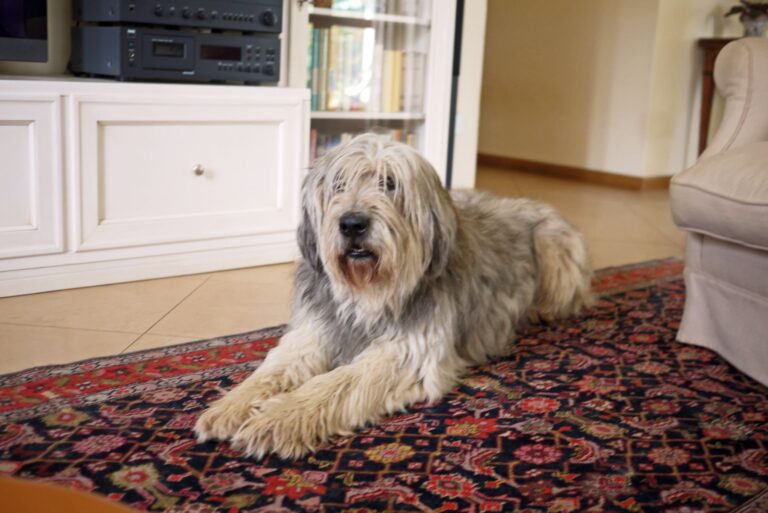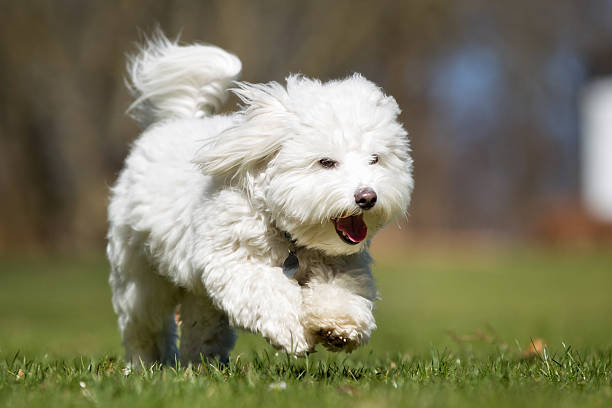Norwich Terriers are a popular breed of small-sized dogs that originated in East Anglia, England. Known for their feisty and charming nature, these British terriers are highly sought after as family pets. With their compact yet sturdy bodies, adorable expressions, and energetic personalities, Norwich Terriers make for fantastic companions. In this article, we will delve into the history, characteristics, and care requirements of Norwich Terriers, providing all the information you need to know about these delightful dogs.
Overview of Norwich Terriers
Origin and History
Norwich Terriers, also known as Norfolk Terriers, are a small breed of British terriers that originated in East Anglia, England. They were initially bred for hunting small vermin such as rats and foxes. The breed’s history dates back to the 19th century when it was developed by crossing various local terrier breeds.
Physical Characteristics
Norwich Terriers are small-sized dogs with a sturdy and compact build. They have a slightly longer body compared to their height, with well-developed muscles. Their double coats consist of a harsh and wiry outer coat and a soft, dense undercoat. The breed comes in various colors including red, wheaten, black and tan, and grizzle.
These terriers have a distinctive expression with their dark, almond-shaped eyes and erect, pointed ears. They have a wedge-shaped head and a strong jaw with a scissor bite. Norwich Terriers typically have a docked tail, which is carried erect when alert.
Temperament
Norwich Terriers are renowned for their feisty and charming personalities. They are known to be confident, curious, and lively dogs. Despite their small size, they possess a courageous and spirited nature. These terriers are highly intelligent and have a strong desire to please their owners, making them relatively easy to train.
While Norwich Terriers are generally friendly and affectionate, they can be independent and may display a stubborn streak at times. They are great with families and get along well with children when properly socialized from an early age. Due to their hunting instincts, they may have a tendency to chase small animals, so caution should be exercised during outdoor activities.
Overall, Norwich Terriers make excellent companions for active individuals or families. Their playful and outgoing nature, combined with their loyalty and adaptability, makes them a popular choice for dog lovers seeking a small yet spirited breed.
Caring for Norwich Terriers
Exercise Needs
Norwich Terriers are active and energetic dogs that require regular exercise to stay healthy and happy. These small terriers have a lot of energy to burn, and daily exercise is essential to fulfill their exercise needs. Taking them for a brisk walk or jog, playing fetch in the backyard, or allowing them to run freely in a securely fenced area are great ways to provide them with the physical activity they need. Engaging them in interactive play sessions or agility training can also help keep them mentally stimulated. It is important to note that they should be supervised during outdoor activities to ensure their safety, as they have a tendency to chase small animals.
Grooming Requirements
The Norwich Terrier has a wiry, weather-resistant double coat that requires regular grooming to keep it in good condition. Brushing their coat at least two to three times a week helps prevent matting and removes loose hair. Additionally, hand-stripping their coat twice a year helps maintain its texture and allows new hair growth. This process involves gently pulling out the dead hairs by hand, which may require professional assistance if you are not familiar with the technique. Regularly checking and cleaning their ears, trimming their nails, and brushing their teeth are also important parts of their grooming routine.
Health Concerns
Like any other breed, Norwich Terriers are prone to certain health concerns that owners should be aware of. Some common health issues that these terriers may face include patellar luxation, hip dysplasia, allergies, and dental problems. Regular veterinary check-ups are essential to monitor their overall health and catch any potential problems early on. Maintaining a healthy diet, providing regular exercise, and ensuring proper dental care can help prevent some of these health issues. It is always advisable to obtain a Norwich Terrier from a reputable breeder who conducts health screenings on their breeding dogs to reduce the risk of genetic health problems.
By following these guidelines for caring for Norwich Terriers, you can ensure that these feisty and charming British terriers lead a happy and healthy life.
Training and Socialization
Training Tips
When it comes to training Norwich Terriers, it’s important to remember that these feisty and charming British Terriers have a strong will and an independent nature. Here are some useful training tips to help you establish a well-behaved and obedient companion:
- Start early: Begin training your Norwich Terrier as soon as you bring them home. Early socialization and training are crucial in shaping their behavior and ensuring they grow up to be well-rounded dogs.
- Use positive reinforcement: Norwich Terriers respond best to positive reinforcement techniques such as praise, treats, and rewards. Rewarding good behavior encourages them to repeat it, reinforcing the desired actions.
- Keep training sessions short and engaging: Due to their short attention span, it’s important to keep training sessions brief and interesting. Make them fun and interactive to maintain their focus and prevent boredom.
- Be consistent and patient: Consistency is key when training Norwich Terriers. Use the same commands and techniques consistently, and be patient with them. It may take time for them to fully grasp and execute commands, so avoid getting frustrated.
- Use firm yet gentle methods: Norwich Terriers are sensitive dogs, so it’s important to use firm but gentle training methods. Harsh punishment or yelling can have a negative impact on their training progress and may even cause anxiety or fear.
Socializing with Other Pets
Norwich Terriers are generally sociable and can get along well with other pets if properly socialized. Here are some tips to help you introduce your Norwich Terrier to other animals:
- Start early and gradually: Begin introducing your Norwich Terrier to other pets at a young age. Start with short and supervised interactions, gradually increasing the duration as they become more comfortable.
- Use positive reinforcement: Reward your Norwich Terrier for calm and friendly behavior around other pets. This positive reinforcement will help them associate positive experiences with socializing and encourage good behavior.
- Supervise interactions: Always closely supervise interactions between your Norwich Terrier and other pets, especially during the initial stages. This allows you to intervene if any signs of aggression or discomfort arise and helps prevent any negative incidents.
- Gradual exposure: Slowly expose your Norwich Terrier to different types of pets, such as cats, dogs, or smaller animals, to help them become familiar with different species and learn appropriate behavior around them.
- Seek professional help if needed: If you encounter difficulties in socializing your Norwich Terrier with other pets, consider seeking guidance from a professional dog trainer or behaviorist. They can provide specific advice tailored to your dog’s needs.
Behavioral Challenges
While Norwich Terriers are generally well-behaved, they can sometimes exhibit certain behavioral challenges. Here are some common challenges you may face and how to address them:
- Separation anxiety: Norwich Terriers are known for their strong bond with their owners, which can lead to separation anxiety when left alone. Gradual desensitization, providing stimulating toys, and creating a comfortable environment can help alleviate this issue.
- Excessive barking: Norwich Terriers are alert and vocal, which can sometimes result in excessive barking. Consistent training to teach the “quiet” command and providing mental stimulation can help manage this behavior.
- Digging and chewing: Like many terrier breeds, Norwich Terriers have a natural instinct to dig and chew. Providing them with appropriate outlets for these behaviors, such as designated digging areas and durable chew toys, can help redirect their energy.
- Stubbornness: Due to their independent nature, Norwich Terriers may occasionally display stubbornness during training. Patience, consistency, and using positive reinforcement techniques can help overcome this challenge and motivate them to cooperate.
Remember, each Norwich Terrier is an individual, and their behavior may vary. If you encounter persistent or severe behavioral issues, consulting with a professional dog trainer or behaviorist is recommended to address them effectively.
The Norwich Terrier is truly a breed that embodies both feistiness and charm. These British terriers are known for their spirited nature and affectionate personalities, making them a beloved choice for dog owners around the world. Whether it’s their adorable appearance, their intelligence, or their unwavering loyalty, Norwich Terriers have a special place in the hearts of many. With their lively and adventurous spirit, they make for great companions and are sure to brighten up any household. If you’re in search of a small yet mighty dog with a big personality, the Norwich Terrier may just be the perfect fit for you.







